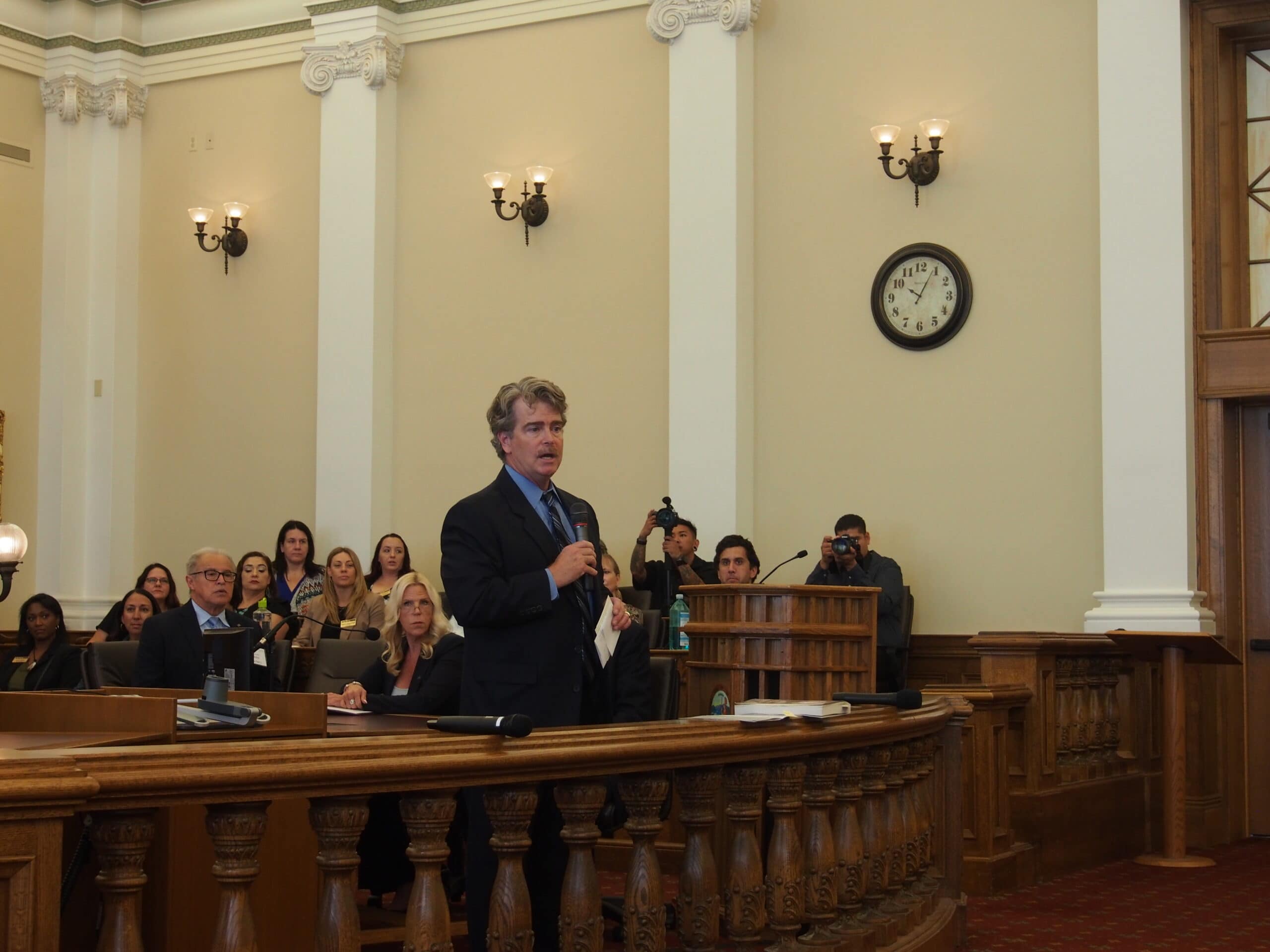Sixty-two Inland Empire students got a good look inside a courtroom—and inside the racist policies of early 19th-century California—Sept. 21.
They were brought to Riverside’s Historic Courthouse to see a live reenactment of the 1918 case People v. Harada. The reenactment was held in the same exact courtroom the case was litigated in.
Following the reenactment, attorneys and judges discussed the court’s role as an independent branch of government, encouraged students to be independent thinkers and presented a teacher of the year award.
The suit involved the due process rights of a Japanese-American family that had bought a house at 3356 Lemon St., just a mile north from the








